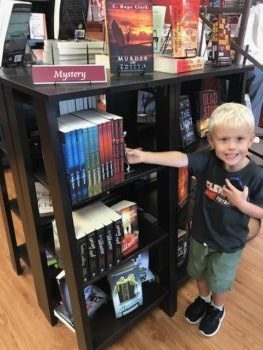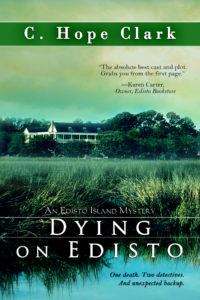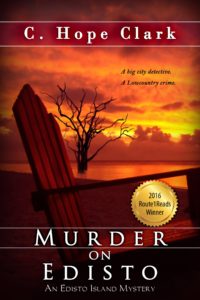|
|
SPONSOR OF THE WEEK

44 Key Questions about Your Story
Hi, I’m Alex, and I run a blog to boost your fiction writing skills (www.ridethepen.com). I put together a short, free manual so you can check your story yourself with 44 simple questions.
This list is the quickest and easiest way to self-assess your story, plus it’s free:
- No need to pay for consultation or bug people for feedback; just answer these questions honestly
- Do it right away with a neatly arranged checklist
- Always helpful: Use the list on all your future stories, till you grow daisies
- Feel confident that you have a good story at hand – or that you need a revision
- Know exactly what you need to change (if anything)
You can download the checklist instantly by clicking here. Have a good day!
EDITOR’S THOUGHTS
QUERY VERSUS LETTER OF INTRODUCTION (LOI)
The shortest, most blunt email anyone receives from me is "The guidelines are on the website," and I send that email many times a week.
The online guidelines at www.fundsforwriters.com/submissions clearly ask for articles on spec. Or if a writer isn't sure, they can pitch ideas, and if one is selected, they then submit that piece on spec. But still, I receive letters of introduction.
The difference between queries and letters of introduction are simple.
QUERIES pitch specific topics or might even pitch the article in its entirety, especially in our situation where the articles are so short (500-600 words). They are as close to publish-ready as a writer can make them and show that a writer understands the publication. They might even write on a topic recommended in the publication's guidelines.
A LETTER OF INTRODUCTION is when a writer sends a brief bio and links to samples of their work. An LOI might be more fitting for someone pitching copywriting work or to a magazine seeking a stable of writers to assign writing to in the future. An LOI outlines your qualifications for that particular publication or corporate entity.
Neither of the above can be generic. Each is written specifically for a particular publication in attempt to show the editor that the writer knows the publication and wants to help make it great. But most of all, the query or LOI isn't about you. It's about what you can offer the publication. . . in very specific terms.
But if the magazine asks for a pitch, don't send an LOI. It almost comes across as arrogant. As if the writer doesn't want to take the time to submit on spec...waiting for the editor to just send an assignment to them. As if the writer doesn't want to think what to write about. Magazines and newsletters are seeking fresh ideas as well as good writing. Stop and think about it....most magazines already know good writers, and if they already have a topic they want written,
they'll assign it to who they know already. You break into magazines/newsletters with new ideas. The writing quality can be hammered out if the idea is savvy enough.

AND A NOTE: I am not doing many big appearances this year, but I will be at this one in June and hope to see you there!

SUPER SPONSOR WORTH NOTING

HOPE'S APPEARANCES
|

|
- March 7-10 - Retreat near David City, Nebraska
- March 26 - 6 PM, Friends of the Library, Florence, SC
- April 1 - 6 PM, Batesburg, SC Library Book Club
- April 2 - 6 PM, Saluda, SC Library Book Club
- April 6 - 12 PM, The Coffee Shelf, Chapin, SC
- April 13 - 3PM, Pelion, SC Library Book Club
- April 18 - 9 AM - WKDK AM, Newberry, SC
- April 18 - Noon - Books on Main, Newberry, SC
- April 19 - 3 PM - Edisto Bookstore, Edisto Island, SC
- June 14-16 - GatewayCon, St Louis, MO
- August 24 - 9-4:30 PM - Sylva, NC - North Carolina Writers Conference
|
SUCCESS QUOTE
"If we all did the things we are capable of doing, we would literally astound ourselves."
~Thomas Alva Edison
SUccess Story
NOTE: If you've won a contest, found an agent, landed a contract, been published, even found a great critique group....thanks to FundsforWriters....let us know! We want to shout your success to the world, and let our fellow FundsforWriters readers pat you on the back and feel empowered!
Email hope@fundsforwriters.com witih your success story.
Featured article
WRITE THE NONFICTION BOOK PROPOSAL BEFORE WRITING THE BOOK
By Jack Dunigan
I finished a manuscript, set it aside for a month, then read it again. But I never even tried to publish it.
Why not?
Because as brilliant as it was (well, I thought so and so did my mother), it was doomed because it had no point. The book, overflowing with insightful arguments and powerfully constructed sentences, was like a new pencil whose value lies not in what it is but in what it will do for a buyer. Without a point, neither pencils nor books have much reason to inspire their purchase.
I should have considered that before I wrote even one chapter. The commercial value of what we write must not be an afterthought. That is why nonfiction publishers require a book proposal and why you should, too, even when you're the publisher.

We write a book proposal to convince our publisher (and ourselves) that this book is a good idea and promises to be a good seller. The details, features, and benefits of the book discovered while writing the proposal will be the core components of your marketing campaign, so it accomplishes two things at one time.
Looking at our idea through the lens of reality, the proposal asks and answers three compelling questions. Can this book find a market? Will it appeal to that market? Does it have what it takes to sell?
Why a book proposal?
1. Because we take our time and talent seriously. We can't afford to squander valuable time on a doomed project. We write to make money. Writing something for which there is no market, or for a market that is too small or that will not or cannot pay makes no sense.
2. To find the angle. It defines how your book differs from other books in the genre.
3. To establish why we are the best person to write it. We tend to exaggerate or underestimate ourselves. A book proposal establishes and clarifies our qualifications.
4. To ensure there is a marketable point. Nonfiction readers only buy solutions, answers, or fulfillment. What problem does my book solve? What question does it answer? What dream does it fulfill?
5. To think in specific terms. WHAT will I write? WHO will read it? WHAT will it do for those readers? WHERE can they be found online and offline? HOW do I get to them? HOW do I help them find me? HOW do I convince them to buy my book?
6. To create an action plan. All the data in the world does little good unless it forms into a plan. Publishers demand one, and if you are the publisher, you should demand one, too. Promotion and marketing reach buyers. The plan considers how to find them and how to persuade them.
What's in a book proposal?
¦ Overview
¦ Marketing & Promotion Plan
¦ Competing Books
¦ Author's Bio and Credentials
¦ List of Chapters
¦ Chapter-by-Chapter Summaries
¦ Sample Chapter(s)
Unless we are going to submit this proposal to a traditional publisher or agent, the exact format is not that important. What is important is that we respond accurately, honestly, and concretely to each section. Once completed, we should pass it by other less subjective eyes than our own – no, not your mother. Address any questions, obstacles, gaps, and potential issues now. Refine, adapt, and revise the proposal until it becomes a sound business proposition.
Then, and only then should we write the entire book.
About the Author
Jack has spent his life as a trainer and consultant, a businessman, a classic car restorer and collector, and as an author. Having sold and consulted for Woodcraft magazine, Classic Auto Restorer, Thousand Trails Campgrounds, World MAP, the Methodist Churches of Cuba, Ten Tables Restaurant, the Equation Gallery and Restaurant, and many more, he now owns an online university for leaders and managers around the world. He is a member of the Nonfiction Author's Association and the manager
of the Indie Authors LinkedIn group with over 3700 members.
www.ThePracticalLeader.com
COmpetitions
BOULEVARD POETRY CONTEST
https://boulevardmagazine.org/poetry-contest/
ENTRY FEE $16. Deadline June 1, 2019. Awards 1,000 and publication awarded for the winning group of three poems by a poet who has not yet published a book of poetry with a nationally distributed press.
EYELANDS 2ND ANNUAL FLASH FICTION CONTEST
https://eyelandscontes.wordpress.com/2019/01/09/eyelands-2nd-international-flash-fiction-contest-2019/
ENTRY FEE 10€. Deadline March 20, 2019. The theme of the contest this year is “Spring.” First prize: A week holiday at Three Rock Writers resort on the island of Crete. Entries must be short stories, of any genre, maximum length is 500 words and must be previously unpublished in a book, printed magazine or web-based journal. Entries must be in English. International.
MEYERSON PRIZE FOR FICTION
https://southwestreview.submittable.com/submit/122420/the-meyerson-prize-for-fiction
ENTRY FEE $25. Deadline May 1, 2019. The prize consists of $1,000 and publication in SwR. Open to any writer who has not published a book of fiction (either a novel or collection of stories). Limit 8,000 words.
FISCHER PRIZE
https://www.tellurideinstitute.org/fischer-prize/
ENTRY FEE $9 PER POEM. Deadline May 1, 2019. The current prize award is $1,000 for the winning poem plus a $500 travel reimbursement stipend for attending the awards ceremony. In addition, there are five finalist awards of $200 each with $100 travel reimbursement stipend. We also will be initiating a $500 Cantor Award for the winning poem in the Fischer Prize contest from a Colorado poet. This annual award is open to poets of all ages living in the US.
ADRIENNE RICH AWARD FOR POETRY
https://www.bpj.org/submit/rich-award-guidelines
ENTRY FEE $15. Deadline April 30, 2019. Submit one to three unpublished poems on any subject in any style up to ten pages. Award is $1,500 for a single poem. Finalists will be notified by June 30; the winner will be announced and published in the Winter 2019 issue of the BPJ.
GHOST STORY SUPERNATIONAL FICTION AWARD
http://www.theghoststory.com/tgs-fiction-award
ENTRY FEE $20. Deadline April 30, 2019. Twice each year TGS awards $1,000 and both online and print publication to the winner of our short story competition. Two other writers receive Honorable Mention awards that include publication and cash prizes of $250. Online publication dates are Midsummer’s Eve, and October 31. Ghost stories are welcome, of course—but your submission may involve any paranormal or supernatural theme, as well as magic realism. What we’re looking for
is fine writing, fresh perspectives, and maybe a few surprises in the field of supernatural fiction. Story length should run between 1,500 and 10,000 words.
PESEROFF PRIZE POETRY CONTEST
https://www.breakwaterreview.com/contests
ENTRY FEE $10. Deadline July 15, 2019. Submit up to three poems. There are no restrictions on content or form. Winner and finalists will be published in the fall issue. First prize is $1,000 and publication.
LORAINE WILLIAMS POETRY PRIZE
https://www.thegeorgiareview.com/the-loraine-williams-poetry-prize/
ENTRY FEE $15. Deadline May 15, 2019. The winning poem and author will be announced by August 15, and the poem will appear in the Spring issue of the following year. All submitted poems will be considered for publication in The Georgia Review; any selected will be paid our regular poetry honorarium of $4 per line. The winner will receive $1,500 and publication in our Spring 2020 issue for a single poem, never before published either in print or online.
NEW DEAL WRITING COMPETITION
http://gvartscouncil.org/writingcompetition/
ENTRY FEE $5. Deadline April 5, 2019. The New Deal Writing Competition is a short story competition where the writer is asked to use a painting chosen by the staff of GVCA as inspiration for their short story. All entries must be 10,000 words or less. The first-place winner will receive $200, be published in our annual magazine, Artsphere and on our website. Their story will also be available to read at our New Deal Spring Art reception and mailed a copy of Artsphere. Second-place winner
will receive $100 and a copy of Artsphere and their work will be published on our website. Third-place winner will receive $50 and a copy of Artsphere.
GRANTS / FELLOWSHIPS / CROWDFUNDING
SCOTLAND WRITING RESIDENCY
https://balticwritingresidency.submittable.com/submit/11884/prose-scotland-writing-residency-fiction-cnf-playwriting
The Scotland Writing Residency awards a free one-week stay in the Brora cottage based on a completed application. While we accept applications all year round, the deadline for the Brora, Scotland residency has been extended to September 15. (translations are admissible). Along with housing, the winner now receives $500. The writer resides, for one week during the summer or fall in a furnished and recently renovated, traditional croft cottage, containing three-bedrooms. It enjoys
uninterrupted views southwards over the Moray Firth and providing open access to the beaches, hills, burns, lochs and the beautiful unspoiled sandy beaches.
KENTUCKY WRITER FELLOWSHIP
https://balticwritingresidency.submittable.com/submit
Deadline May 15, 2019. The winner is NOT chosen by anyone with a particular relationship to Kentucky, nor is the winner chosen by the staff of the Baltic Writing Residency. Rather, an anonymous member of the English Department of Harvard University will judge. The application fee is $8 and the winner receives $500 which is paid out over several months. Open to any writer of English who is a Kentucky native, resident, past resident, or current student, or whose writing is set in Kentucky or
about Kentucky.
BLACKACRE FOREST WRITING RESIDENCY
https://balticwritingresidency.submittable.com/submit/11494/poetry-blackacre-reserve-writing-residency
The Blackacre Writing Residency is located in a beautiful, 300-acre forest and nature preserve located near Louisville, KY. The writer receives a $200 honorarium, and resides, for one to two weeks, in a furnished house, on the grounds, offering all of the modern domestic necessities. The period of the residency is dependent, in part, on the institution's overall schedule of visiting artists and writers. In turn, the writer has an immense amount of say as to when they occupy the
residency, having the ability to delay beginning the residency for up to a year of being awarded the residency. We are more than open to genre writing (YA, sci-fi, romance, thriller, crime, etc.).
ART OMI RESIDENCIES
http://artomi.org/residencies/writers
Deadline July 15, 2019. Guests may select a residency of one week to two months; about ten writers at a time gather to live and work in a rural setting overlooking the Catskill Mountains. Daytime is reserved for writing and quiet activities, while evenings are more communal. A program of weekly visits brings guests from the New York publishing community. Noted editors, agents and book scouts are invited to share dinner and conversation on both creative and practical subjects, offering
insight into the workings of the publishing industry, and introductions to some of its key professionals. Readings throughout the year invite the public to experience finished and in-process work by writers and translators in residence. Fully funded except for transportation.
VARUNA RESIDENTIAL FELLOWSHIPS
http://www.varuna.com.au/
In 2019, Varuna will award 24 Residential Fellowships, including the Flagship Fellowships. Varuna Residential Fellowships offer a writer independent writing time, accommodation and full board at Varuna the Writers' House in the Blue Mountains near Sydney, Australia. The residency provides a dedicated writing environment with four other writers allowing intensive work, conversation and community. Varuna Residential Fellowships are taken between January and end of May each year.
THE JOYA
https://joya-air.org/
Deadline March 17, 2019. The Joya: residency is based at Los Gázquez, five restored farmhouses made into one off-grid sustainably minded destination within the Parque Natural Sierra María - Los Vélez, Andalucía, Spain. Consider Joya: AiR not only a unique, stimulating and contemplative environment for international artists and writers but as a meeting point for divergent and creative thinking. This is a multi-disciplinary residency, self-determined, critical and
profoundly engaging. The Joya: AiR residency has a subsidized artist fee of €300 per week + tax (10 percent) to cover expenses. Joya: AiR is currently accepting applications in Spanish and English only.
FREELANCE MARKETS
ADDITUDE MAGAZINE
https://www.additudemag.com/contact-us/contributors-guidelines/
Most ADDitude articles are written by journalists and mental-health professionals. However, we are happy to receive first-person articles by parents, employers, teachers, etc. with personal experience with ADHD or LD and insights that might be helpful to ADDitude‘s readers.
SEATTLE MET
https://www.seattlemet.com/pages/writers-guidelines
We’ll consider freelancers to work on the following departments:
Mudroom “Talk of the Town”–type articles and sidebars that put a fresh spin on local news, trends, and personalities. News Feature Major news stories written in a creative style and based on solid reporting.
Weekend Pass Travel stories of interest to Seattleites.
Elements of Style A look inside a unique boutique, plus must-have fashion items and style tips.
Habitat Ways to spruce up your domicile—with lighting or tiles or antiques—and profiles of designers and great-looking homes (house or apartment), newly built or renovated, focusing on the client and the design process.
Pour a Peek inside the exciting world of Seattle potables with an emphasis on the people behind the drinks—craft brewers, coffee roasters, wine and spirit makers—plus shopping picks, recipes, and home bar tips.
FOREIGN AFFAIRS
https://www.foreignaffairs.com/submissions-0
Foreign Affairs covers a broad range of topics related to American foreign policy and global affairs. It strives to present clear thinking by knowledgeable observers on important issues, written in English that can be read with ease and pleasure by both professionals and a broad general audience. In the print magazine, Comments are 2,000-3,000-word front-of-the-book pieces that make a single, provocative point. Essays are more extensive 4,000-5,000-word pieces of analysis or reportage that
comprise the body of the magazine. Review Essays are 2,000-3,000-word discussions of new books. Responses offer 1,000-1,500-word commentaries on material that has been published in previous issues. As for Web-only features, Snapshots are 750-1,500-word analyses of important current events and policy issues. Letters From are 750-1,500-word firsthand reports from abroad. Postscripts are 750-1,500-word commentaries by past authors on how well their earlier articles for us have held up.
COMMUNICATION ARTS
https://www.commarts.com/write-us
Creative industry thought leaders who can contribute well-written opinion columns or reported pieces that cover emerging trends, ethical issues and what it takes to thrive in the fields of typography, photography, illustration, advertising and design for print, digital and interactive media. Communication Arts pays all writers a highly competitive rate or flat fee, which is negotiated upon assignment.
INTERNATIONAL LIVING MAGAZINE
https://internationalliving.com/about-il/write-for-il/write-for-international-living-magazine/
International Living Magazine aims at providing a scope and depth of information about global travel, living, retiring, investing, and real estate that is not available anywhere else at any price. Payment is upon publication. International Living buys all rights and we pay $225 for 900 words and $350 for 1,600 words. As regards photographs, if we use one of yours we pay $50 for one-time use, and you retain the rights.
Publishers/agents
CAMINO BOOKS
https://www.caminobooks.com/pages/submissions
We publish nonfiction books of local and regional interest to people in the Middle Atlantic states; we generally do not publish fiction, poetry, or children's books.
CHARLES PRESS
https://charlespresspub.com/manuscript-submission-guidelines/
Currently, we are especially interested in instructive health-related books—whether physical or psychological health—for professionals, clinicians, students, educators, and the general reader. We do not publish fiction, poetry, humor, personal accounts or children's books. Some of the subjects that we are currently interested in are health (mental and physical health), healthcare, complementary and alternative medicine, naturopathic medicine, nutrition, food and diet,
cooking, animal science, veterinary medicine, pets, companion animals, religion, psychology, health sciences, behavioral sciences, suicide, parenting, philosophy, sociology, counseling, aging, eldercare (exercise, nutrition, and physical and mental well-being), gerontology, criminology, criminal justice and forensic science, and self-help.
CHRONICLE BOOKS
https://www.chroniclebooks.com/submissions
Chronicle Books publishes an eclectic mixture of traditional and innovative children's books. We are looking for projects that have a unique bent—be it in subject matter, writing style, or illustrative technique—and that will lend our list a distinctive flair. We are interested in fiction and nonfiction books for children of all ages, as well as board books, decks, activity kits, and other unusual or "novelty" formats.
CEDAR GROVE PUBLISHING
http://cedargrovebooks.com/submissions/
At this time, Cedar Grove Publishing accepts fiction only in the form of children’s books, middle-grade and young adult novels, sci-fi/fantasy/horror, mystery, and graphic novels. We do not accept nonfiction, textbooks, or educational materials. We are willing to review unsolicited and non-agented manuscripts. We accept submissions twice a year in 45-day increments. Submissions are currently closed until May 1, 2019.
HIEROPHANT PUBLISHING
https://www.hierophantpublishing.com/submissions/
We are always on the lookout for manuscripts that were written from a state of presence, both fiction and nonfiction. Hierophant Publishing is a Body, Mind, and Spirit book publisher. (Beautiful covers, which I often tend to judge a publisher by.)
BAREBACK PRESS
http://www.barebackpress.com/Submissions.html
We are currently accepting submissions for full-length books of poetry, poetry chapbooks, collections of short fiction, and flash-fiction. We do not publish novels or nonfiction.
LEE & LOW
https://www.leeandlow.com/writers-illustrators/writing-guidelines
LEE & LOW BOOKS is an independent children’s and young adult book publisher that focuses on multicultural themes. Our goal is to meet the need for books that address children and teens of color by providing culturally authentic titles that all readers can enjoy. Picture books, early readers, and chapter books are published under our Lee & Low Books, Shen’s Books, and Children’s Book Press imprints. Middle-grade and young adult novels are published under our Tu
Books imprint.
SPONSORS

Professional and Affordable
Ebook & Print Cover Design


www.fundsforwriters.com/advertising
FINE PRINT
Please forward the newsletter in its entirety. To reprint any editorials, contact hope@fundsforwriters.com for permission. Please do not assume that acknowledgements listed in your publication is considered a valid right to publish.
C. Hope Clark
E-mail: hope@fundsforwriters.com
140-A Amicks Ferry Road #4
Chapin, SC 29036
http://www.fundsforwriters.com
Copyright 2000-2019, C. Hope Clark
ISSN: 1533-1326
**Note that FundsforWriters.com places paid advertising in this newsletter, ALL ads being related to writers and the business of writing, screened by FundsforWriters to make sure the information is suitable for writers and their endeavors to improve their careers. But the mailing list is not sold to third parties. You will not receive this newsletter without your permission.
It's physically impossible since recipients must opt-in, giving us permission to send the newsletter. If at any time you no longer with to receive the newsletter, click the UNSUBSCRIBE link at the bottom of each newsletter. We want you to enjoy this newsletter at your pleasure, not be forced to read anything you do not wish to receive. The website is not advertised using unsolicited messages by Aweber, affiliates or other third parties. Direct any complaints, suggestions, and accolades to
Hope Clark at hope@fundsforwriters.com. We are an anti-spam site.
|
|












